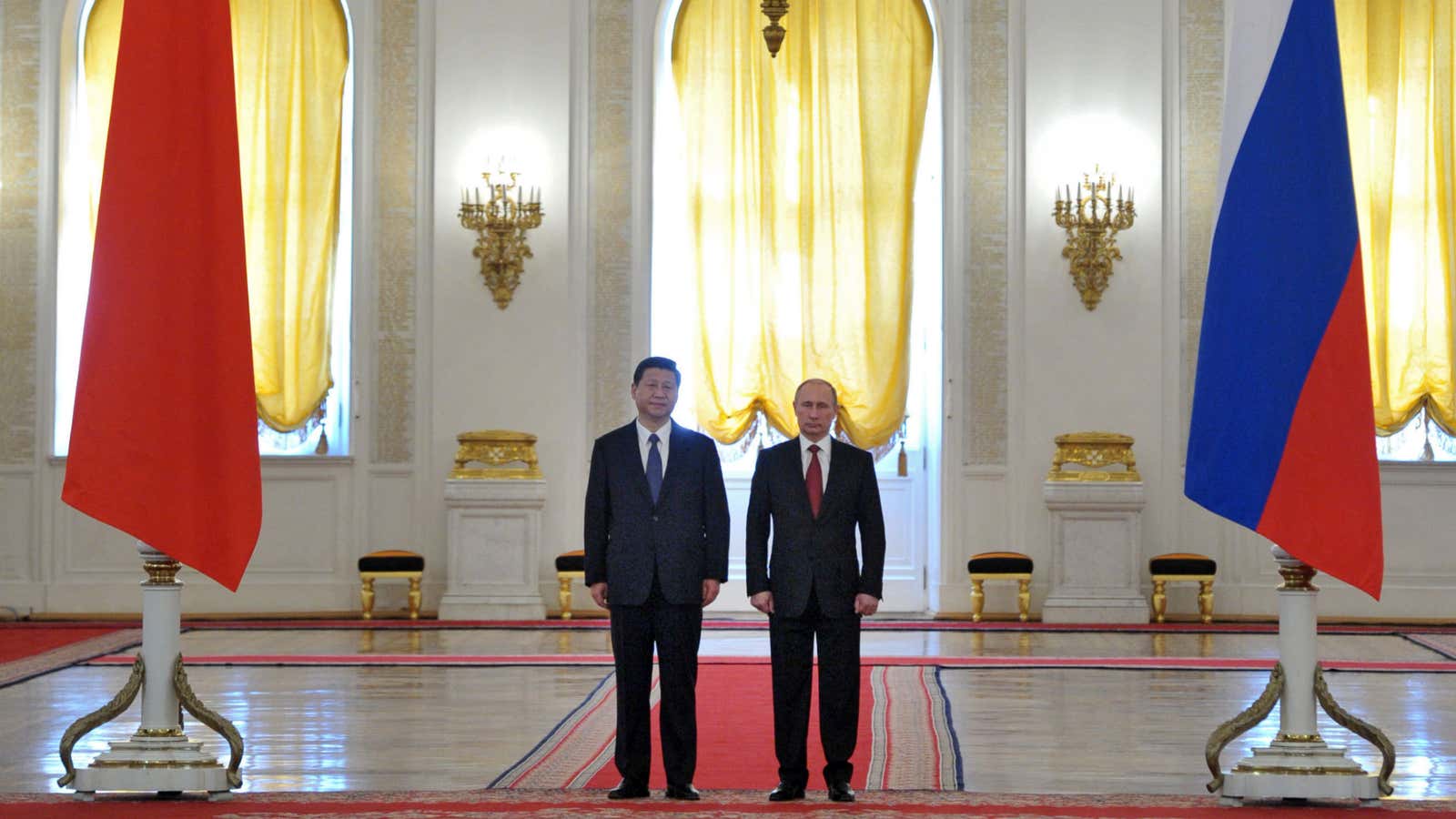US President Barack Obama’s cancelled meeting with Russian President Vladimir Putin provided a great opportunity for China’s state-run media to high-five Russia, showcasing growing ties between the two neighbors.
“Russia has impressed the world, which views the Kremlin as the ‘winner’ and the White House as the ‘loser,'” proclaimed an unsigned editorial in the Global Times on Thursday about the decision to give immunity to NSA leaker Edward Snowden. “Moscow displayed its national characteristics of decisiveness and boldness.” China’s decision to let Snowden decamp from Hong Kong and avoid confronting America head-on “serves the long-term interests of China’s diplomacy,” the paper added, concluding that Washington, “ate dirt this time.”
A growing friendliness between Russia and China has been evident in recent months, with Xi Jinping taking his first diplomatic trip as president to the Kremlin, joint naval exercises on Japan’s front door, joint anti-terror drills codenamed “Peace Mission 2013” in the Urals, optimistic trade predictions, a mammoth $270 billion oil deal and even Putin’s enthusiastic nonverbal appraisal of China’s first lady.
A growing alliance between the world’s most populous country and the world’s biggest by area, who both share a political heritage and deep distrust of the West, is the stuff of American diplomatic nightmares. But Russia and China have their own contentious backstory as well, including a long, disputed border with a history of military skirmishes, and an ideological schism in the 1960s that risked nuclear war.
Setting aside the crowing over Snowden, the rest of the world has little to fear from any true alliance between the two countries, Jeffrey Mankoff, deputy director of the Russia and Eurasia Program at the Center for Strategic and International Studies wrote in the International Herald Tribune last month: “Moscow touts its partnership with Beijing mostly to prove to the rest of the world that Russia still matters, while China views it as a low-cost way of placating Russia.”
While that may be true, it hasn’t stopped Beijing from ladling on the praise over the Snowden affair. “Every country involved save the United States has won,” said an editorial in China’s state-run Huanqiu newspaper (Chinese), in language often identical to the one in the Global Times. “Moscow has demonstrated its diplomatic mettle toward Washington.”




